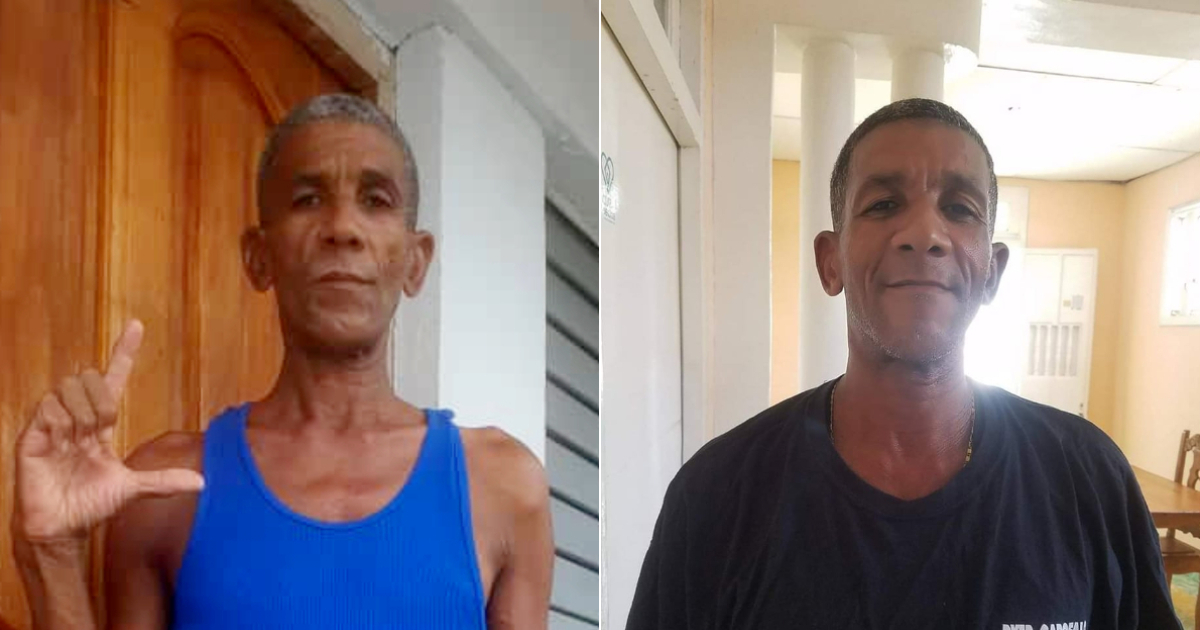
The activist of the Patriotic Union of Cuba (UNPACU), Fernando González Vaillant, was released after serving more than two years in prison and losing over 50 pounds (24 kilograms) due to hunger, illness, and the conditions of the penitentiary facility.
This was reported by the Cuban activist Ana Belkis Ferrer García, sister of the political prisoner and leader of UNPACU, José Daniel Ferrer, explaining the "inhumane conditions" that the opposition leader endured during his unjust imprisonment.
"This Saturday, July 20, 2024, political prisoner Fernando González Vaillant, an activist of UNPACU and promoter of Cuba Decide, was released in Santiago de Cuba, after serving 2 years, 7 months, and 15 days of unjust, arbitrary, and cruel confinement in Mar Verde prison," said the activist on her social media.
González Vaillant "remained confined in a detachment alongside common prisoners in inhuman and degrading conditions, without receiving visits on several occasions, as they decided to prevent Carlos Oliva (a friend and also an activist) from delivering the food bag to force him to endure more hunger than normal."
Due to these cruel and degrading treatment, defined by international organizations as forms of torture, the opponent suffered from malnutrition and managed to stay alive thanks to the solidarity of friends and family.
"Several times he was sick, with infected bedbug bites and without receiving medical assistance. Castro assassins took him away weighing 180 pounds, and today he weighs 127 pounds, just after having lunch," detailed the sister of the UNPACU leader, José Daniel Ferrer, who has been in the same Mar Verde prison since his arbitrary detention on July 11, 2021, the day of the historic protests that shook towns and cities across Cuba.
González Vaillant had been under house arrest since March 2020 when he was detained in early April 2022. After his "unjust, arbitrary, and violent arrest," members of the organization demanded proof of life for González Vaillant and his immediate release.
In mid-January 2021, José Daniel Ferrer himself shared a video of the moment when González Vaillant was detained while he was arriving with salt for the food that they were cooking at the UNPACU headquarters for the elderly in extreme poverty and the sick.
Days earlier, Ferrer had been violently arrested while waiting at the corner of his home for activists González Vaillant and Roilán Zárraga Ferrer, who had gone to buy food for the lunch that UNPACU provided to people in need.
The members of the Patriotic Union of Cuba, and especially its leader, have been victims of the cruelest and most perverse repression by the State Security of the Cuban totalitarian regime. Their work in denouncing injustices, their calls for freedom and human rights, and their solidarity actions towards vulnerable groups in their community have triggered a fierce persecution by the regime's agents.
At the end of March 2022, the organization Prisoners Defenders reported to the UN the forms of torture endured by more than 100 political prisoners in Cuba.
After conducting interviews, open and closed questionnaires, and applying other research methodologies on a sample of 101 political prisoners and their families, the organization identified "15 patterns of torture in Cuba."
The "deprivation of medical care among political prisoners," "forced labor and tasks not appropriate to their status as defendants or criminal convictions," or "highly uncomfortable, harmful, degrading, and prolonged postural patterns," the "deprivation of liquids and/or food," the "intentional deprivation of sleep," the "deprivation of communication with family, defense, and loved ones," or the "threats to them, their integrity, their safety, and that of their loved ones," were included among the degrading and humiliating practices employed by the Cuban regime against its political prisoners.
What do you think?
COMMENTFiled under: